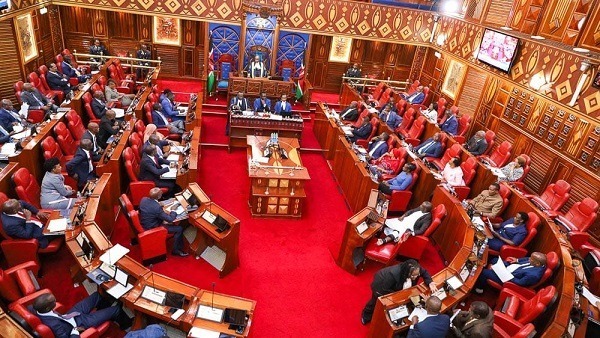
An ongoing power struggle pitting the Senate against the National Assembly has taken a turn after senators followed through on their threat to initiate a parallel constitutional amendment aimed at expanding their legislative authority.
The lawmakers have drafted a constitutional amendment bill, marking the first formal step in their long-standing push for enhanced powers.
The bill, which is yet to be formally submitted to the Government Printer for publication, is sponsored by Senate majority leader Aaron Cheruiyot and minority leader Stewart Madzayo.
It runs concurrently with a separate amendment proposal spearheaded by the National Dialogue Committee and championed by the National Assembly.
The Senate’s version has been developed by a team of legal experts led by the House’s Justice, Legal Affairs and Human Rights committee chairman, Hillary Sigei (Bomet).
Senior counsels Tom Ojienda (Kisumu) and Okong’o Omogeni (Nyamira) are part of the drafting team, alongside Nairobi Senator Edwin Sifuna and nominated Senator Catherine Mumma.
“We have drafted the bill and presented it to senators. What we want is enhanced legislative powers,” a member of the team told the Star.
The bill was unveiled during an informal session – commonly known as a kamukunji – chaired by Speaker Amason Kingi on Thursday.
The proposed amendment seeks to transform the Senate into a true upper house, with expanded veto powers over legislation, the national budget and decisions by the National Assembly.
Currently, the constitution bars the Senate from handling money bills – legislation that primarily deals with financial matters such as taxation, public expenditure, or borrowing.
Under the existing framework, only the National Assembly can introduce and process money bills, a limitation that senators argue has marginalised their legislative role.
Many have expressed frustration over Senate-sponsored bills being dismissed by the National Assembly on the grounds that they qualify as money bills.
“They terminate your bill and days later reintroduce the same content with a different sponsor,” one senator alleged.
The proposed amendment seeks to grant the Senate a formal role in the budget-making process, including approval of the national government’s budget.
It also aims to give the Senate oversight authority over the vetting of state officers – such as Cabinet Secretaries – and a broader role in shaping national fiscal policy.
This renewed legislative push comes just days after senators hosted opposition leader Raila Odinga, who voiced strong support for reforms to strengthen the Senate’s mandate.
“We would like to see our Senate work like that of the US – give it proper powers and responsibilities,” Raila said.
The Senate’s bill now runs parallel to constitutional reforms proposed by Nadco, a bipartisan initiative led by representatives of Raila and President William Ruto.
The Nadco Bill covers sweeping changes to the country’s governance structure, including the creation of a Prime Minister and two Deputy Prime Ministers, as well as the establishment of a Leader of the Official Opposition.
It also seeks to enshrine key oversight and development funds in law – among them, the National Government Affirmative Action Fund (managed by women representatives) and the Senate Oversight Fund, designed to bolster the Senate’s watchdog role.
Instant Analysis:
Under Article 255 of the constitution, any proposed amendments that touch on critical areas – such as the supremacy of the constitution, Kenya’s territorial integrity, the sovereignty of the people, the Bill of Rights, presidential terms, judicial independence, the role of Parliament, or the structure of devolution – must be subjected to a national referendum.


.jpg&w=3840&q=100)







